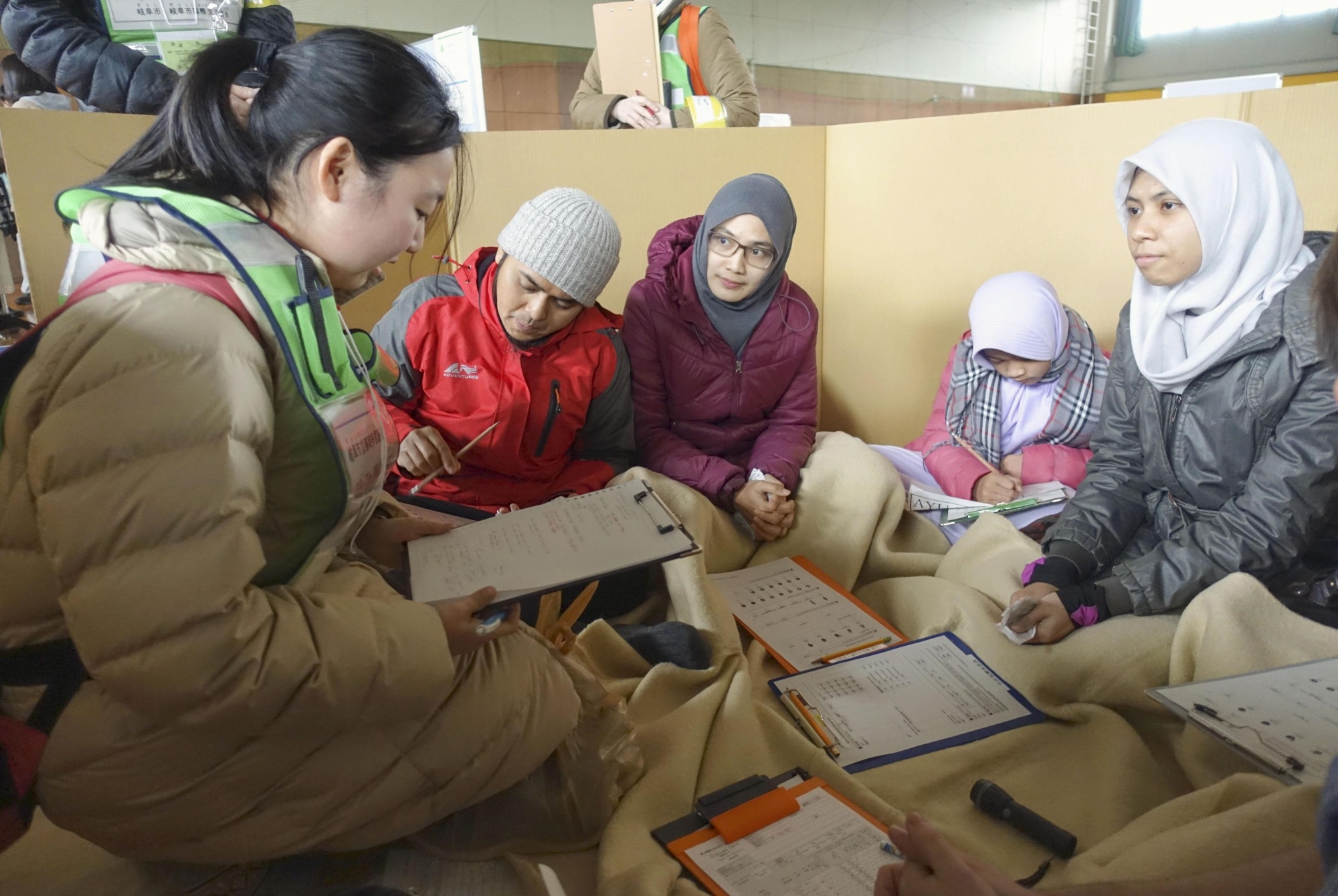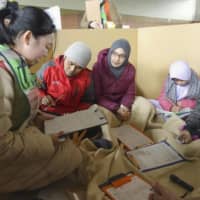A large majority of major Japanese cities recognize the need to provide multilingual information and aid to the growing number of foreign residents and tourists should a natural disaster occur, a Kyodo News survey found Thursday.
The survey, conducted late last year, found that 52 local governments — almost 80 percent of those surveyed — as well as 20 ordinance-designated cities already have or plan to set up disaster support centers providing multilingual services.
The central government has encouraged local authorities to establish such centers, given that during the deadly 1995 Great Hanshin Earthquake and more recent natural disasters many of those without Japanese-language skills were bereft of vital information.
The survey found that 23 local governments had multilingual disaster support functions, but many still failed to widely disseminate information from their disaster response headquarters to foreign residents.
Forty-eight said they have integrated multilingual facilities in their disaster prevention plans or agreed to set them up with the help of local organizations that promote international exchanges, while four respondents said they are prepared to establish such centers.
As for the centers' functions, 65 of the respondents described them as "transmitting information in multiple languages," followed by 60 respondents who said they are for "giving advice" and "translating government information."
Using the centers to check up on shelters to assess the need for aid was cited by 49 municipal governments.
The languages used to transmit information and provide assistance differ by region depending on demographics. During the 2011 earthquake and tsunami that devastated northeastern Japan, Ibaraki Prefecture provided information and advice in eight languages, including English, Chinese, Spanish and Thai.




